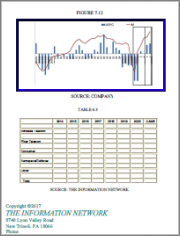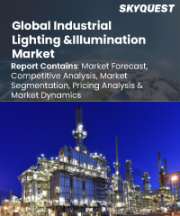
|
시장보고서
상품코드
1803812
LED 필름 뷰어 시장 : 제품 유형, 전원, 용도, 유통 채널별 - 세계 예측(2025-2030년)LED Film Viewer Market by Product Type, Power Source, Application, Distribution Channel - Global Forecast 2025-2030 |
||||||
LED 필름 뷰어 시장은 2024년에는 4억 3,334만 달러로 평가되었으며, 2025년에는 4억 5,765만 달러, CAGR 5.70%로 성장하여 2030년에는 6억 445만 달러에 달할 것으로 예측됩니다.
| 주요 시장 통계 | |
|---|---|
| 기준 연도 2024년 | 4억 3,334만 달러 |
| 추정 연도 2025년 | 4억 5,765만 달러 |
| 예측 연도 2030년 | 6억 445만 달러 |
| CAGR(%) | 5.70% |
현대 진단 및 시각적 커뮤니케이션 워크플로우에서 LED 필름 뷰어의 확장되는 지평을 발견하십시오.
LED 필름 뷰어는 임상 현장부터 산업 검사 시설에 이르기까지 다양한 전문 환경에서 필수적인 도구로 등장하고 있습니다. 선명하고 균일한 백라이트를 제공하도록 설계된 고휘도 조명 장치로서, 이 뷰어는 엑스레이 필름, 진단 스캔 및 기술 이미지의 정확한 해석을 용이하게 합니다. 과거 의료 영상 애플리케이션에 뿌리를 둔 LED 기술의 채택은 비파괴 검사, 보안 검사, 동물 진단 등의 분야로 확대되고 있습니다. 그 결과, 이 기술의 역할은 단순한 필름 조명에 그치지 않고 성능 최적화, 인체공학적 설계, 에너지 효율까지 발전하고 있습니다.
LED 필름 뷰어의 상황과 그 가치 제안을 형성하고, 기술, 규제 상황, 애플리케이션 주도의 중요한 변화를 파악합니다.
LED 필름 뷰어의 상황은 조명 기술의 비약적인 발전, 규제 상황의 변화, 애플리케이션 요구 사항의 진화로 인해 크게 변화하고 있습니다. 고출력 LED와 모듈 설계 아키텍처의 혁신으로 밝기 균일성 및 색온도 보정을 더 잘 제어할 수 있게 되었습니다. 이러한 변화는 사용자의 편안함과 화질의 선명도를 향상시킬 뿐만 아니라 시청 기기의 사용 수명을 연장하는 데에도 도움이 됩니다. 이와 함께 지속가능성 의무와 에너지 효율 기준의 강화로 인해 제조업체들은 저전력 부품과 재활용 가능한 재료를 채택해야 하는 상황에 직면해 있습니다.
미국 관세 도입이 공급망에 미치는 중층적 영향생산 비용과 경쟁 역학에 미치는 영향
2025년으로 다가온 미국의 관세 발동은 LED 필름 뷰어의 세계 공급망에서 복잡한 상호의존성을 부각시키고 있습니다. LED 다이오드, 알루미늄 기판, 전자제어 모듈 등 주요 부품에 대한 수입관세는 생산비용을 전반적으로 상승시킬 우려가 있습니다. 제조업체들이 조달 전략을 재검토하는 가운데, 관세의 영향을 줄이기 위해 국내 공급업체를 중시하는 움직임이 눈에 띕니다. 그러나 이러한 재조정은 부품의 가용성, 리드 타임, 품질 보증에 대한 새로운 과제를 야기합니다.
제품 유형, 전원 공급 장치, 용도에 따라 채택 패턴이 어떻게 형성되는지 파악할 수 있는 통찰력 있는 세분화 분석
미묘한 세분화 분석을 통해 LED 필름 뷰어의 다양한 카테고리에 따라 서로 다른 요구 사항과 채택 패턴이 밝혀졌습니다. 제품 유형을 고려할 때, 탁상형 LED 필름 뷰어는 휴대용 애플리케이션 및 소형 작업 공간에 적합하며, 벽걸이형 LED 필름 뷰어는 다중 사용자 환경에 최적화된 고정 설치가 가능합니다. 마찬가지로, 전원 공급 장치 세분화는 중단 없는 고출력을 제공하는 AC 전원 공급 장치와 이동성 및 배포 유연성을 우선시하는 배터리 구동 모델의 절충점을 강조합니다.
아메리카, 유럽, 중동 및 아프리카, 아시아태평양의 지역 역학 프로파일링별 수요 촉진요인 매핑
지역 역학은 아메리카, 유럽, 중동 및 아프리카, 아시아태평양의 LED 필름 뷰어 채택 및 기술 혁신에 큰 영향을 미칩니다. 아메리카에서는 미국과 캐나다의 선진화된 헬스케어 인프라와 라틴아메리카의 산업 검사 역량에 대한 투자가 수요를 견인하고 있습니다. 에너지 효율을 촉진하는 규제 프레임워크는 기존 라이트박스에서 LED 솔루션으로의 전환을 더욱 가속화할 것입니다.
경쟁사 LED 필름 뷰어 시장에 영향을 미치는 전략적 이니셔티브 파트너십 및 혁신 파이프라인 분석
주요 제조업체들은 R&D에 대한 전략적 투자, 타겟팅된 파트너십, 종합적인 서비스 제공으로 차별화를 꾀하고 있습니다. 일부 세계 기업들은 LED 효능과 지능형 제어 시스템의 발전에 초점을 맞춘 혁신 센터를 설립했습니다. 이러한 시설은 반복적인 프로토타이핑과 엄격한 품질 테스트를 촉진하여 제품을 신속하게 개선할 수 있도록 합니다. 또한, 특수 부품 공급업체와의 협력을 통해 광 출력과 열 성능을 향상시키는 최첨단 소재에 대한 접근성을 확보했습니다.
혼란을 극복하기 위한 전략적 과제와 전술적 제안신기술 활용과 시장 포지셔닝 강화를 위한 전략적 과제와 전술적 제안
새로운 비즈니스 기회를 활용하기 위해 업계 리더들은 진화하는 애플리케이션 요구사항에 대응할 수 있는 모듈식 및 업그레이드 가능한 아키텍처에 대한 투자를 우선시해야 합니다. 개방형 인터페이스 제어 시스템을 채택함으로써 제조업체는 디지털 이미지 플랫폼 및 중앙 집중식 자산 관리 소프트웨어와의 원활한 통합을 촉진 할 수 있습니다. 또한, 다양한 조달 계약과 핵심 부품의 전략적 비축을 통해 공급망 강건성을 강화함으로써 무역 중단에 따른 재무적 리스크를 줄일 수 있습니다.
1차 전문가 인터뷰 2차 데이터 삼각측량 및 공급망 검증을 통합한 종합적인 조사 프레임워크
본 분석을 뒷받침하는 조사 방법은 1차 데이터와 2차 데이터 수집방법을 강력하게 결합한 것입니다. 헬스케어, 산업, 보안 분야의 설계 엔지니어, 조달 전문가, 최종사용자를 포함한 업계 이해관계자와의 구조화된 인터뷰를 통해 1차적인 인풋을 얻었습니다. 이러한 대화는 기술 요구 사항, 공급망 제약, 채택 촉진요인에 대한 직접적인 관점을 제공했습니다.
LED 필름 뷰잉 솔루션의 영향력을 극대화할 수 있는 시장 진화 과제와 전략적 방향에 대한 핵심 요점 요약.
요약 : LED 필름 뷰어 분야는 기술 발전, 규제 압력, 애플리케이션 요구 사항의 다양화로 인해 지속적인 변화를 겪고 있습니다. 강화된 LED 성능과 인체공학적 혁신의 조합이 사용자의 기대를 재정의하는 한편, 지정학적 발전과 관세에 대한 고려로 인해 민첩한 공급망 전략이 요구되고 있습니다. 고처리량 산업용 검사부터 섬세한 의료용 영상 처리 프로토콜에 이르기까지, 부문별 요구사항은 맞춤형 솔루션과 모듈식 아키텍처의 중요성을 뒷받침합니다.
목차
제1장 서문
제2장 조사 방법
제3장 주요 요약
제4장 시장 개요
제5장 시장 역학
제6장 시장 인사이트
- Porter's Five Forces 분석
- PESTEL 분석
제7장 미국 관세의 누적 영향 2025
제8장 LED 필름 뷰어 시장 : 제품 유형별
- 탁상 LED 필름 뷰어
- 벽걸이식 LED 필름 뷰어
제9장 LED 필름 뷰어 시장 : 전원별
- AC 전원
- 배터리식
제10장 LED 필름 뷰어 시장 : 용도별
- 교육 조사기관
- 산업용 비파괴 검사(NDT)
- 의료 영상
- CT/MRI 필름 뷰잉
- 맘모그래피
- X선
- 보안과 방위
- 수의 진단
제11장 LED 필름 뷰어 시장 : 유통 채널별
- 오프라인
- 온라인
- E-Commerce 플랫폼
- 제조업체 웹사이트
제12장 아메리카의 LED 필름 뷰어 시장
- 미국
- 캐나다
- 멕시코
- 브라질
- 아르헨티나
제13장 유럽, 중동 및 아프리카의 LED 필름 뷰어 시장
- 영국
- 독일
- 프랑스
- 러시아
- 이탈리아
- 스페인
- 아랍에미리트
- 사우디아라비아
- 남아프리카공화국
- 덴마크
- 네덜란드
- 카타르
- 핀란드
- 스웨덴
- 나이지리아
- 이집트
- 튀르키예
- 이스라엘
- 노르웨이
- 폴란드
- 스위스
제14장 아시아태평양의 LED 필름 뷰어 시장
- 중국
- 인도
- 일본
- 호주
- 한국
- 인도네시아
- 태국
- 필리핀
- 말레이시아
- 싱가포르
- 베트남
- 대만
제15장 경쟁 구도
- 시장 점유율 분석, 2024
- FPNV 포지셔닝 매트릭스, 2024
- 경쟁 분석
- Absen Optoelectronic Co., Ltd.
- AG Neovo Corporation
- AMCAREMED TECHNOLOGY CO., LIMITED
- AOTO Electronics Co., Ltd.
- AU Optronics Corp.
- Barco N.V.
- BOE Technology Group Co., Ltd.
- Byron Global Enterprises
- Daktronics, Inc.
- Eastman Kodak Company
- Hoyamo Precision Instrument Ltd.
- Infiled Electronics Co., Ltd.
- LCNDT CO., LTD
- Leyard Optoelectronic Co., Ltd.
- LG Electronics Inc.
- Magnafield Electronics and Engineering Pvt. Ltd.
- NanoLumens, Inc.
- NDT Supply.com, Inc.
- NOMO Group Inc.
- ROE Visual Co., Ltd.
- Samsung Electronics Co., Ltd.
- Shenzhen Absen Optoelectronic Co., Ltd.
- Sony Corporation
- Tepixel Technology Co., Ltd.
- Unilumin Group Co., Ltd.
제16장 리서치 AI
제17장 리서치 통계
제18장 리서치 컨택트
제19장 리서치 기사
제20장 부록
KSM 25.09.16The LED Film Viewer Market was valued at USD 433.34 million in 2024 and is projected to grow to USD 457.65 million in 2025, with a CAGR of 5.70%, reaching USD 604.45 million by 2030.
| KEY MARKET STATISTICS | |
|---|---|
| Base Year [2024] | USD 433.34 million |
| Estimated Year [2025] | USD 457.65 million |
| Forecast Year [2030] | USD 604.45 million |
| CAGR (%) | 5.70% |
Discover the Expanding Horizons of LED Film Viewers in Modern Diagnostic and Visual Communication Workflows
LED film viewers have emerged as indispensable tools across a diverse array of professional environments, from clinical settings to industrial inspection facilities. As high-intensity illumination devices designed to deliver crisp, uniform backlighting, these viewers facilitate precise interpretation of radiographic films, diagnostic scans and technical imagery. Historically rooted in medical imaging applications, the adoption of LED technology has extended into fields such as non-destructive testing, security screening and veterinary diagnostics. Consequently, the technology's role has evolved beyond simple film illumination, encompassing performance optimization, ergonomic design and energy efficiency.
In recent years, the intersection of technological innovation and rising demand for reliable visual assessment solutions has intensified the focus on next-generation LED film viewers. The growing complexity of diagnostic workflows coupled with stringent regulatory standards continues to shape both product development and procurement strategies. Moreover, advancements in luminous efficacy and thermal management have prompted manufacturers and end users to reassess legacy lightbox installations in favor of more adaptable LED systems. This introduction lays the groundwork for an in-depth exploration of transformative trends, supply chain dynamics and strategic imperatives defining today's LED film viewer landscape.
Uncover the Pivotal Technological, Regulatory, and Application Driven Shifts Reshaping the LED Film Viewer Landscape and Its Value Proposition
The landscape of LED film viewers is undergoing a profound transformation driven by breakthroughs in lighting technology, shifting regulatory requirements and evolving application demands. Technological innovations in high-output LEDs and modular design architectures have enabled greater control over brightness uniformity and color temperature calibration. This shift not only enhances user comfort and image clarity but also extends the usable lifetime of viewing devices. In parallel, rising sustainability mandates and energy efficiency standards are compelling manufacturers to adopt low-power components and recyclable materials, thereby reducing operational costs and environmental impact.
Furthermore, application-driven change is extending the reach of LED film viewers into new domains. Educational institutions now leverage these devices for detailed anatomical studies, while security agencies integrate them into forensic analysis laboratories. In industrial settings, non-destructive testing professionals require precise illumination to detect material flaws. As a result, the value proposition of LED film viewers spans beyond traditional radiology suites, encompassing a spectrum of use cases that demand tailored lighting solutions. These transformative shifts collectively redefine how stakeholders perceive performance, reliability and adaptability in the LED film viewer market.
Examining the Layered Effects of Upcoming United States Tariffs on Supply Chains Production Costs and Competitive Dynamics
The looming implementation of United States tariffs in 2025 has cast a spotlight on the intricate interdependencies within global supply chains for LED film viewers. Import duties on key components such as LED diodes, aluminum substrates and electronic control modules threaten to inflate production costs across the board. As manufacturers recalibrate sourcing strategies, there is a noticeable pivot toward domestic suppliers to mitigate tariff exposures. This recalibration, however, introduces new challenges related to component availability, lead times and quality assurance.
In response, several industry participants are exploring vertical integration and strategic partnerships to insulate their operations from sudden cost escalations. Additionally, there is a concerted effort to negotiate long-term contracts with overseas component vendors prior to tariff enactment. These pre-emptive measures aim to stabilize pricing structures and preserve competitive positioning. Nevertheless, pricing pressures may ultimately translate into higher end-user costs, potentially delaying adoption in cost-sensitive segments. Overall, the cumulative impact of the 2025 tariffs underscores the importance of supply chain resilience and proactive risk management in maintaining operational continuity and market agility.
Insightful Segmentation Analysis Revealing How Product Types Power Sources and Applications Shape Adoption Patterns
A nuanced segmentation analysis reveals distinct requirements and adoption patterns across various categories of LED film viewers. When considering product type, tabletop LED film viewers cater to portable applications and compact workspaces, while wall-mounted LED film viewers offer fixed installations optimized for multi-user environments. Similarly, power source segmentation highlights the trade-offs between AC powered units, which deliver uninterrupted high output, and battery operated models that prioritize mobility and deployment flexibility.
Application-specific insights further illuminate market dynamics. Within educational and research institutions, high-resolution illumination supports interactive learning and collaborative analysis. Industrial non-destructive testing demands durability and consistent brightness to identify micro-defects in materials. In the medical imaging sector, sub-segmentation into CT/MRI film viewing, mammography and X-ray underscores the need for calibrated luminance and ergonomic adjustments. Additionally, security and defense professionals rely on rapid film review under variable lighting conditions, while veterinary diagnostics benefit from portable, easy-to-clean designs. Distribution channel segmentation identifies offline points of purchase such as specialty distributors and equipment resellers, alongside online avenues that include both e-commerce platforms and manufacturer websites, each offering unique procurement advantages.
Profiling Regional Dynamics across Americas Europe Middle East & Africa and Asia Pacific to Map Demand Drivers
Regional dynamics exert a profound influence on the adoption and innovation of LED film viewers across the Americas, Europe Middle East & Africa and Asia-Pacific. In the Americas, demand is principally driven by advanced healthcare infrastructure in the United States and Canada, alongside burgeoning investments in industrial inspection capabilities across Latin America. Regulatory frameworks promoting energy efficiency further accelerate the transition from legacy lightboxes to LED solutions.
In Europe, the push for sustainable technologies is reinforced by stringent environmental directives, encouraging manufacturers to prioritize low-power designs. The Middle East & Africa region exhibits selective adoption, with key focus markets leveraging portable and durable models to support remote field operations. Meanwhile, the Asia-Pacific region stands out for its rapid industrialization and expanding medical imaging facilities in countries like China, India and Japan. These markets display a growing appetite for cost-effective, scalable LED film viewers, complemented by increasing online distribution channels. Collectively, regional insights underscore the importance of tailoring product features and go-to-market strategies to localized needs.
Analyzing Strategic Initiatives Partnerships and Innovation Pipelines Impacting the Competitive LED Film Viewer Arena
Leading manufacturers are distinguished by their strategic investments in research and development, targeted partnerships and comprehensive service offerings. Several global players have established innovation centers focused on advancing LED efficacy and intelligent control systems. These facilities facilitate iterative prototyping and rigorous quality testing, enabling rapid product refinement. In addition, collaboration with specialty component suppliers ensures access to cutting-edge materials that enhance light output and thermal performance.
Meanwhile, smaller niche firms are carving out competitive positions through customizable solutions and consultative sales approaches. By offering modular designs and flexible configuration options, these companies address specific application challenges, from veterinary imaging to aerospace inspection. Furthermore, a number of industry participants are forging distribution alliances with regional integrators to broaden their reach and streamline after-sales support. Collectively, these strategic initiatives and innovation pipelines are reshaping the competitive arena, raising the bar for performance, reliability and end-user experience.
Strategic Imperatives and Tactical Recommendations to Navigate Disruption Leverage Emerging Technologies and Fortify Market Positioning
To capitalize on emerging opportunities, industry leaders should prioritize investment in modular, upgradeable architectures that accommodate evolving application requirements. By adopting open-interface control systems, manufacturers can facilitate seamless integration with digital imaging platforms and centralized asset management software. Furthermore, reinforcing supply chain resilience through diversified sourcing agreements and strategic stockpiling of critical components will mitigate the financial risks associated with trade disruptions.
In addition, organizations must intensify their focus on user-centric design, incorporating adjustable luminance controls and ergonomic enhancements to improve operator comfort. Cultivating partnerships with research institutions and end users will yield valuable insights for continuous product refinement. Lastly, embracing data-driven service models-such as usage analytics and predictive maintenance-can generate recurring revenue streams while deepening customer relationships. These tactical recommendations will enable market participants to navigate disruption, differentiate their offerings and sustain long-term growth.
Comprehensive Research Framework Integrating Primary Expert Interviews Secondary Data Triangulation and Supply Chain Validation
The research methodology underpinning this analysis integrates a robust combination of primary and secondary data collection techniques. Primary inputs were obtained through structured interviews with industry stakeholders, including design engineers, procurement specialists and end users across healthcare, industrial and security segments. These conversations provided firsthand perspectives on technology requirements, supply chain constraints and adoption drivers.
Secondary research encompassed an extensive review of technical whitepapers, regulatory filings and academic publications to validate market trends and technological capabilities. Data triangulation was conducted by cross-referencing multiple sources, ensuring consistency and accuracy in the synthesis of findings. Supplementary supply chain validation exercises involved direct feedback from key distributors and component manufacturers, which provided granular insights into production lead times and cost structures. This comprehensive framework ensures that conclusions are grounded in empirical evidence and reflect the latest developments across regions and segments.
Summarizing Core Takeaways on Market Evolution Challenges and Strategic Pathways to Maximize LED Film Viewing Solutions Impact
In summary, the LED film viewer sector is poised for sustained transformation as technological advancements, regulatory pressures and diversified application requirements converge. Enhanced LED performance combined with ergonomic innovations is redefining user expectations, while geopolitical developments and tariff considerations necessitate agile supply chain strategies. Segment-specific demands-from high-throughput industrial inspections to nuanced medical imaging protocols-underscore the importance of customizable solutions and modular architectures.
Moving forward, regional nuances will shape demand trajectories, with mature markets emphasizing sustainability and emerging markets prioritizing affordability and scalability. Leading companies that embrace open interfaces, data-driven service models and strategic partnerships will secure competitive advantages. Ultimately, success in this dynamic environment hinges on balancing innovation with operational resilience, delivering both immediate value and a roadmap for future growth.
Table of Contents
1. Preface
- 1.1. Objectives of the Study
- 1.2. Market Segmentation & Coverage
- 1.3. Years Considered for the Study
- 1.4. Currency & Pricing
- 1.5. Language
- 1.6. Stakeholders
2. Research Methodology
- 2.1. Define: Research Objective
- 2.2. Determine: Research Design
- 2.3. Prepare: Research Instrument
- 2.4. Collect: Data Source
- 2.5. Analyze: Data Interpretation
- 2.6. Formulate: Data Verification
- 2.7. Publish: Research Report
- 2.8. Repeat: Report Update
3. Executive Summary
4. Market Overview
- 4.1. Introduction
- 4.2. Market Sizing & Forecasting
5. Market Dynamics
- 5.1. Growing demand for high resolution imaging in medical diagnostics
- 5.2. Integration of digital and smart features in traditional film viewing equipment
- 5.3. Rapid integration of transparent LED film displays in retail storefronts enhancing customer engagement
- 5.4. Technological advancements in light intensity and uniformity control
- 5.5. Expanding use of portable and compact LED film viewers in field applications
- 5.6. Increasing adoption of LED film viewers in industrial nondestructive testing
- 5.7. Adoption of flexible LED film technology in automotive head-up displays transforming in-car infotainment
- 5.8. Stringent quality standards driving upgrades in inspection equipment
- 5.9. Growing awareness about radiation safety and improved image interpretation
- 5.10. Emergence of wireless power transmission systems for seamless LED film installations in public venues
6. Market Insights
- 6.1. Porter's Five Forces Analysis
- 6.2. PESTLE Analysis
7. Cumulative Impact of United States Tariffs 2025
8. LED Film Viewer Market, by Product Type
- 8.1. Introduction
- 8.2. Tabletop LED Film Viewers
- 8.3. Wall-Mounted LED Film Viewers
9. LED Film Viewer Market, by Power Source
- 9.1. Introduction
- 9.2. AC Powered
- 9.3. Battery Operated
10. LED Film Viewer Market, by Application
- 10.1. Introduction
- 10.2. Educational & Research Institutions
- 10.3. Industrial Non-Destructive Testing (NDT)
- 10.4. Medical Imaging
- 10.4.1. CT/MRI Film Viewing
- 10.4.2. Mammography
- 10.4.3. X-ray
- 10.5. Security & Defense
- 10.6. Veterinary Diagnostics
11. LED Film Viewer Market, by Distribution Channel
- 11.1. Introduction
- 11.2. Offline
- 11.3. Online
- 11.3.1. E-commerce Platforms
- 11.3.2. Manufacturer Websites
12. Americas LED Film Viewer Market
- 12.1. Introduction
- 12.2. United States
- 12.3. Canada
- 12.4. Mexico
- 12.5. Brazil
- 12.6. Argentina
13. Europe, Middle East & Africa LED Film Viewer Market
- 13.1. Introduction
- 13.2. United Kingdom
- 13.3. Germany
- 13.4. France
- 13.5. Russia
- 13.6. Italy
- 13.7. Spain
- 13.8. United Arab Emirates
- 13.9. Saudi Arabia
- 13.10. South Africa
- 13.11. Denmark
- 13.12. Netherlands
- 13.13. Qatar
- 13.14. Finland
- 13.15. Sweden
- 13.16. Nigeria
- 13.17. Egypt
- 13.18. Turkey
- 13.19. Israel
- 13.20. Norway
- 13.21. Poland
- 13.22. Switzerland
14. Asia-Pacific LED Film Viewer Market
- 14.1. Introduction
- 14.2. China
- 14.3. India
- 14.4. Japan
- 14.5. Australia
- 14.6. South Korea
- 14.7. Indonesia
- 14.8. Thailand
- 14.9. Philippines
- 14.10. Malaysia
- 14.11. Singapore
- 14.12. Vietnam
- 14.13. Taiwan
15. Competitive Landscape
- 15.1. Market Share Analysis, 2024
- 15.2. FPNV Positioning Matrix, 2024
- 15.3. Competitive Analysis
- 15.3.1. Absen Optoelectronic Co., Ltd.
- 15.3.2. AG Neovo Corporation
- 15.3.3. AMCAREMED TECHNOLOGY CO., LIMITED
- 15.3.4. AOTO Electronics Co., Ltd.
- 15.3.5. AU Optronics Corp.
- 15.3.6. Barco N.V.
- 15.3.7. BOE Technology Group Co., Ltd.
- 15.3.8. Byron Global Enterprises
- 15.3.9. Daktronics, Inc.
- 15.3.10. Eastman Kodak Company
- 15.3.11. Hoyamo Precision Instrument Ltd.
- 15.3.12. Infiled Electronics Co., Ltd.
- 15.3.13. LCNDT CO., LTD
- 15.3.14. Leyard Optoelectronic Co., Ltd.
- 15.3.15. LG Electronics Inc.
- 15.3.16. Magnafield Electronics and Engineering Pvt. Ltd.
- 15.3.17. NanoLumens, Inc.
- 15.3.18. NDT Supply.com, Inc.
- 15.3.19. NOMO Group Inc.
- 15.3.20. ROE Visual Co., Ltd.
- 15.3.21. Samsung Electronics Co., Ltd.
- 15.3.22. Shenzhen Absen Optoelectronic Co., Ltd.
- 15.3.23. Sony Corporation
- 15.3.24. Tepixel Technology Co., Ltd.
- 15.3.25. Unilumin Group Co., Ltd.



















